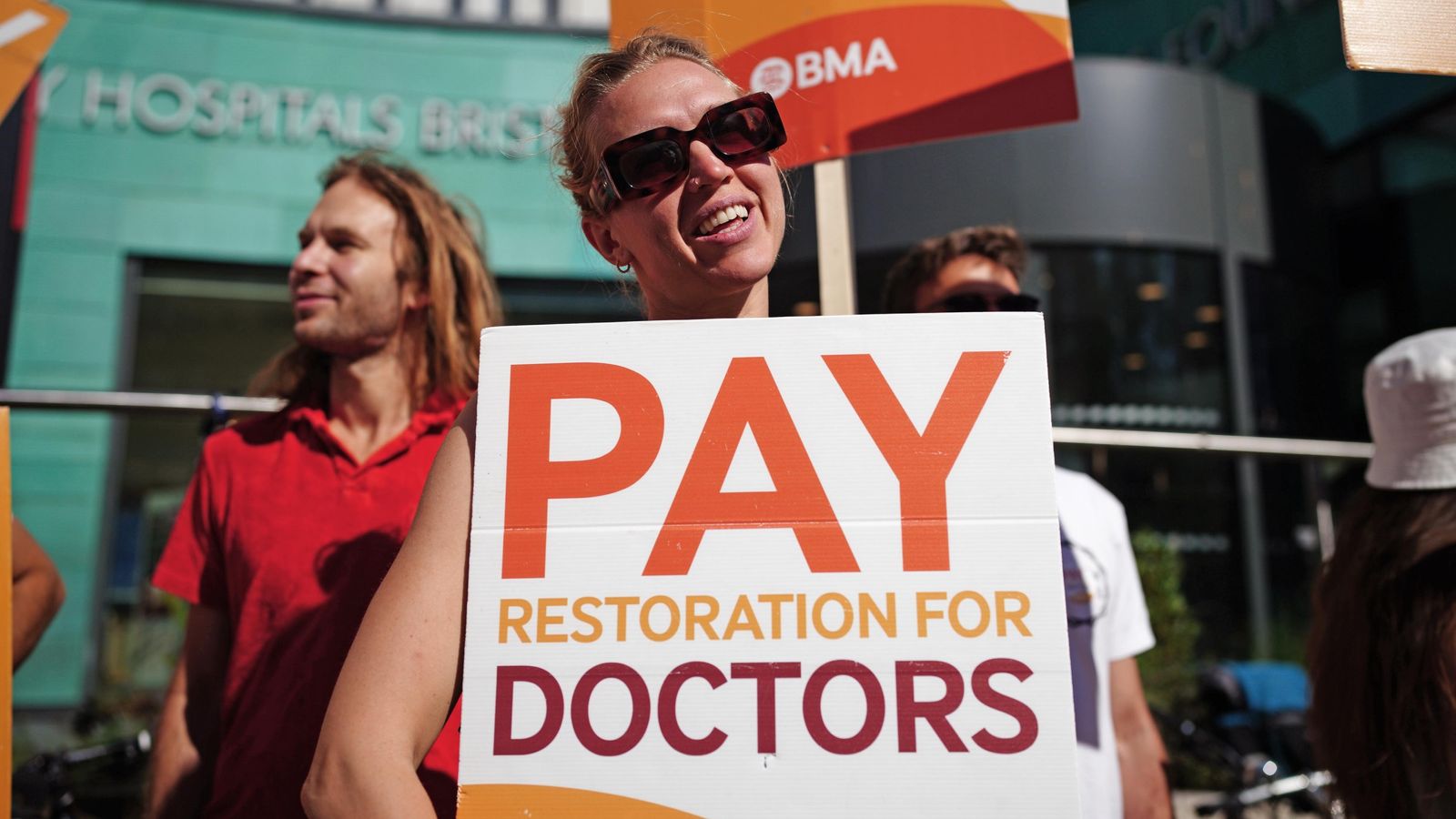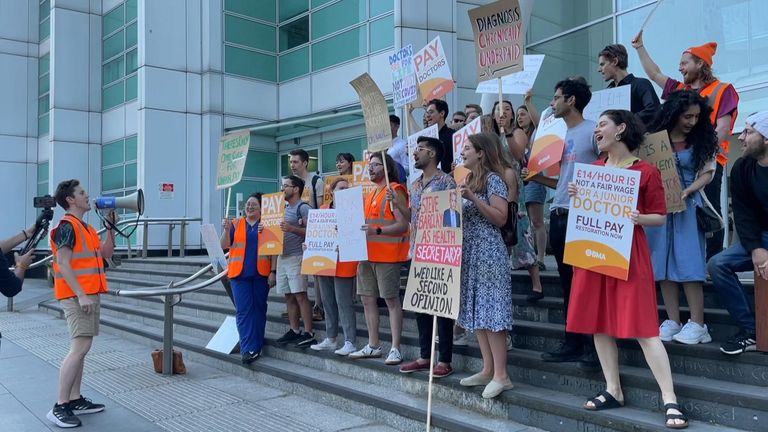Junior doctors walking out for five days – the longest strike in NHS history


Junior doctors are striking for five days from today, marking their longest period of industrial action yet.
From 7am, young medics at the British Medical Association (BMA) will walk out as they argue for their pay to be raised by about 35%.
They will return to wards on Tuesday.
Politics latest: Rishi Sunak will ‘strain every sinew’ to keep promises
Such an increase is being demanded as the union argues it wants to restore pay to the levels seen by junior doctors in 2008 – with increases since eroded by inflation.
But Health Secretary Steve Barclay says the five-day action “collapsed” the negotiations that had been taking place.
This action follows months of wrangling between unions, the NHS and government over pay awards.
Non-doctor workers, including nurses, accepted improved terms that included a one-off payment, a pay rise of 5% for most staff and 10.4% for those on the lowest wages, and a series of “non-pay measures to support the workforce”.
Many unions accepted this offer, but some – including the Royal College of Nursing, podiatrists, radiographers and Unite – rejected it, but lost their case at a plenary meeting and the agreement was imposed.
Advertisement
Meanwhile, NHS consultants are set to strike for 48 hours from 7am on Thursday 20 July.
According to the BMA, “junior doctors were offered an insulting and well below inflation pay rise of 2%” – which is why they want the 35% bump.
Please use Chrome browser for a more accessible video player
2:24
Junior doctors to strike
BMA leaders Dr Robert Laurenson and Dr Vivek Trivedi said: “Today marks the start of the longest single walkout by doctors in the NHS’s history, but this is still not a record that needs to go into the history books.
“We can call this strike off today if the UK government will simply follow the example of the government in Scotland and drop their nonsensical precondition of not talking whilst strikes are announced and produce an offer which is credible to the doctors they are speaking with.
“The pay offer on the table to junior doctors in Scotland and how it was reached throws into sharp relief the obstinate approach being taken by the prime minister and the health secretary, Steve Barclay.
“The health secretary has said there can be no talks while strikes are planned – Scotland has proved him wrong. He said above 5% wasn’t realistic – Scotland proved him wrong. He refused to even acknowledge the concept of pay restoration – Scotland proved this is not only possible but essential.”
Junior doctors in Scotland are to vote on a pay offer worth 17.5% over two years.
NHS Providers has called on both the unions and the government to come back to the negotiating table.
Deputy chief executive Saffron Cordery said: “Eight consecutive months of industrial action across the NHS are taking their toll not just on patients, with more than 651,000 routine procedures and appointments forced to be rescheduled, but on already overstretched services – hampering efforts to cut waiting lists.”
Mr Barclay said: “It is disappointing that the BMA is going ahead with further strike action. This five-day walkout by junior doctors will have an impact on thousands of patients, put patient safety at risk and hamper efforts to cut NHS waiting lists.
“We were in discussions about pay and a range of other measures to improve the working lives of junior doctors until their representatives collapsed the negotiations by announcing further strikes.
“A pay demand of 35% or more is unreasonable and risks fuelling inflation, which makes everyone poorer.”
Click to subscribe to Beth Rigby Interviews… wherever you get your podcasts